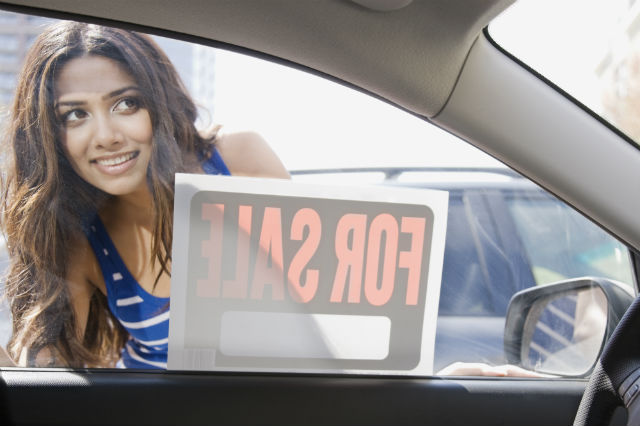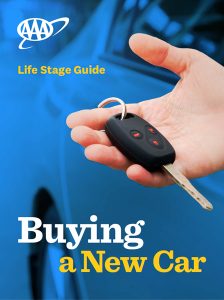The car-buying process can seem overwhelming, especially for first-time buyers. But the abundance of vehicle and financing options ensures that there is a perfect car, at the right price, for everyone. If you’re embarking on your initial trip into the automobile-purchasing waters, these tips for first-time car buyers will help you part the sea.
Establish a Budget
You’ll most likely need to finance your car, which means paying in monthly installments. So you need to decide how much you can truly afford to pay each month after covering your other living expenses.
Remember, it’s not just about the cost of the car. You also need to factor in insurance, gas and maintenance (if it’s not covered by a warranty) when calculating your budget.
Research Financing Options
When it comes to financing your car purchase, make sure to research your options. Many people simply use the dealer’s lender without thinking twice. If the dealer turns out to be the best option, great. But one of the best first-car car buyer tips we can give is to shop around.
There is no shortage of financial institutions and companies willing to help finance your car. AAA’s Auto Loan Program, for instance, offers low rates at competitive terms to fit your budget. All you need to do is submit an auto loan application and you’ll receive a fast credit decision. As an added bonus, if the rate changes between the time you apply for your loan and the time you pick up the check, you’ll pay the lower rate.
Buying vs. Leasing
You may be tempted to lease a car instead of buying. When you lease, your monthly payments are generally lower than buying. And while leasing may be a good idea in certain circumstances – say if you know you’ll only need a car for two or three years or you don’t typically put on a lot of mileage – it also comes with pitfalls.
Leases are short-term investments. They have mileage limits that you must adhere to. You’ll also need to pay if there’s any damage to the car that exceeds normal wear and tear. On the other hand, when you purchase a car, your monthly payments will eventually end and when they do, you’ll own the car. Of course, that also means keeping up with proper maintenance as the car ages.

Do Your Homework
Once you know what ballpark you’re in cost-wise, you need to do some research. Between make, model and trim, there are an exponential number of car options. In order to sift through the choices, think about what you need from your car. Yes, you may want a sunroof for the few times you drive to the beach, but if you’re on a tight budget, you really need good gas mileage.
Even after narrowing down your search, there will still be plenty of options. Fortunately, there are numerous resources that can help. AAA’s Auto Buying Program, for example, lets you compare vehicles, see what others have paid and get special members pricing on actual dealer inventory.
New vs. Used
One major decision first-time car buyers have to make is whether to buy new or used. The downside to purchasing is that your new car is a deprecating asset. In fact, as soon as you drive it off the lot, the car loses a significant portion of its value. And it will continue to drop for the first several years of ownership. According to Carfax, a new vehicle’s value can drop by more than 20% after its first year and 10% annually over the next four. That would leave you with a car worth less than half of what you paid for it.
There is a way to avoid funding this depreciation: buying used. The idea of buying a brand-new, sparkling car can be tempting, but don’t let that cloud your judgement. Purchasing a preowned car can often be the more prudent approach, particularly if you have a tighter budget.
Preowned may sometimes cost less, have many of the latest technology and safety features, and that early depreciation will have been paid for by the previous owner.
Test and Inspect
After finding your perfect first car, it’s time to make the purchase a reality. But don’t be too quick to sign on the dotted line. With all the online research available, it’s easy to forget how you feel behind the wheel. One of the most crucial tips for first-time car buyers – or any buyers – is to test drive the vehicle. There is no other substitute for learning how the car drives and feels. And it should not simply be around the block. Take the car on a route with different driving environments, such as traffic light intersections and highways. It should replicate your normal driving routine as much as possible
You’ll also need to ensure the car is in good shape. This means getting the car inspected by an independent third party, such as a AAA Approved Auto Repair shop. Don’t wait until after you purchase the car to do this, even if it looks like it’s in pristine condition. If a dealer doesn’t allow it, shop elsewhere. If all goes well, enjoy your new ride.
What was your first car purchase? How did the process go?
Learn more about how AAA can help you get your dream car.
One Thought on “6 Tips for First-Time Car Buyers”
Leave A Comment
Comments are subject to moderation and may or may not be published at the editor’s discretion. Only comments that are relevant to the article and add value to the Your AAA community will be considered. Comments may be edited for clarity and length.


















Lease and investment should never be in the same sentence. Anything you pay or trade in is GONE at the end of the lease. And you have no car.